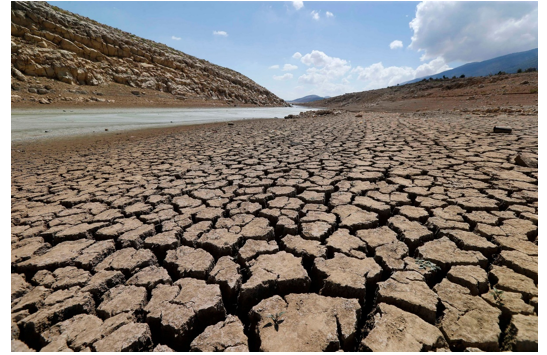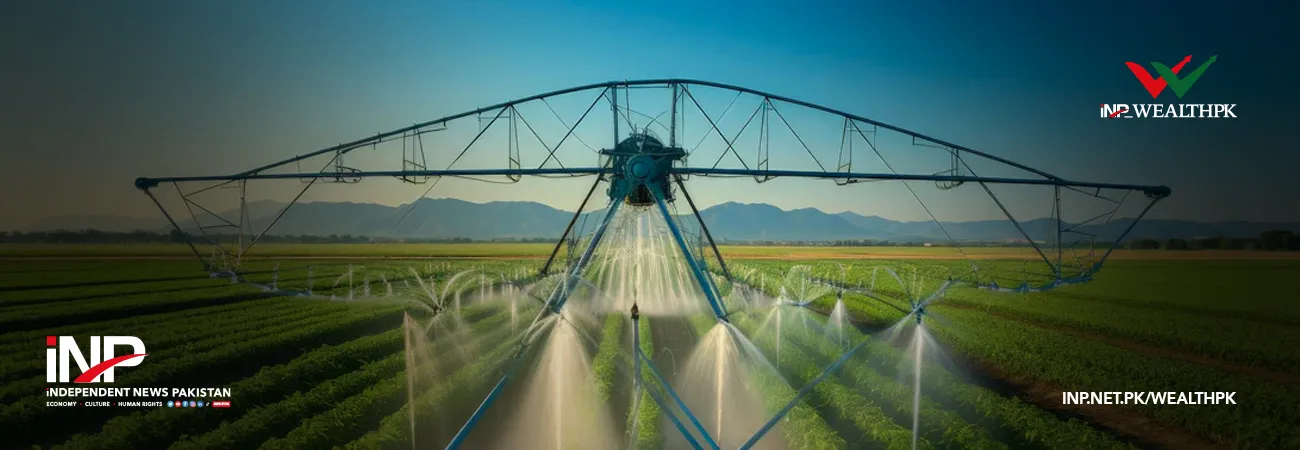INP-WealthPk
Arooj Zulfiqar
Tackling the pressing issue of water scarcity requires innovative solutions to optimise water usage and maintain agricultural productivity, according

to an agriculture expert. “One such solution is enhancing water productivity through the use of Precision Land Leveling (PLL), a mechanical process that smoothens land surfaces for more efficient irrigation. Traditionally, PLL has relied on conventional tools like bucket-type soil scrapers and tractor-mounted blades,” said M Tariq, a senior scientific officer at National Agriculture Research Centre (NARC). However, he said a more advanced and effective technique is Laser-Assisted Land Levelling, which utilises Light Amplification by Stimulated Emission of Radiation (LASER) technology. Talking to WealthPK, he said water scarcity in Pakistan is driven by a combination of factors, including climate change, outdated irrigation systems, and poor water management practices. According to Pakistan Council of Research in Water Resources (PCRWR), the country is rapidly approaching absolute water scarcity scenario. If current trends persist, the country may exhaust its water resources by 2025. The agricultural sector, being the largest consumer of water, has a crucial role in addressing this issue. Tariq said that the alarming decline in groundwater resources for irrigation highlights the need for policies that encourage farmers to adopt water-saving technologies.
He pointed out that water scarcity is a major factor limiting crop production, and the value of water is not fully reflected in current pricing, pushing many farmers to depend on private tube wells due to unreliable canal water supplies. “The introduction of LASER land levelling in Pakistan has proven to be highly effective in conserving water, improving the accuracy of land grading, reducing operational costs, promoting uniform seed germination, and enhancing fertilizer efficiency,” he said. An impact assessment conducted in 2018 revealed significant benefits, including a 25% improvement in water conservation, a 23% increase in crop yields, an 11% boost in fertilizer efficiency, and an 18% reduction in labour costs. “In addition to conserving water, laser land levelling provides several other benefits for farmers. The technique reduces the time and effort required for field preparation and allows for uniform seed germination, which translates into higher yields.
Moreover, the technique improves fertiliser efficiency by distributing nutrients evenly across the field, reducing input costs for farmers,” the NARC scientist pointed out. He said: “Despite these advantages, the widespread adoption of LASER land levelling in emerging economies remains limited.” He underscored the need for further research, extension services, and supportive policies to promote this technology on a broader scale. Tariq stressed that adopting technologies like LASER land levelling is essential for increasing per-acre productivity and conserving water in agriculture. “To overcome the challenges posed by water scarcity, a concerted effort is needed to integrate innovative technologies, engage stakeholders, and implement policies that support sustainable farming practices. As Pakistan faces growing environmental challenges, embracing precision land levelling technologies is crucial for securing the long-term viability of its agricultural sector,” Tariq said.
Credit: INP-WealthPk













